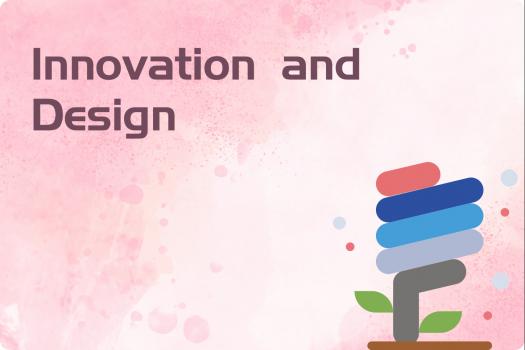.
文化遗产的含义
文化遗产是一个社会发展并代代相传的生活方式的表达,包括习俗、地点、物品、艺术表达和价值观念。
类型:
有形遗产:建筑物、纪念碑、文物
非物质遗产:表演艺术、语言、传统、知识
自然遗产:景观、生物
文化遗产管理:
- 保存历史记忆和特征
- 让公众接触文化遗产(教育、享受)
意大利文化遗产的特色
- 宪法保护
- 到处都是文化遗产
文化遗产创新
意大利文化遗产创新之路2的特色
innovation in cultural heritage
the italian way
Beborah Agostino
cultural heritage
definition
which is an expression of the ways of living developed by a community and passed by generation and generation
types:
tangible heritage movable immovable
intangible heritage performing arts language traditions knowledge
natural heritage landscape biodiversity
management comprises two pillars
preservation
valuing
distinctive features of italian cultural heritage
1. fundamental principle of the italian constitution
2. italian cultural heritage is everywhere
largest italian cities Rome Florence Turin Venice Milan
seaside and coastal towns cinque terre amalfi coast aeolian island caprera island polignano a mare
mountains and internal areas sassi and the rupestrian churches in matera delta area of the po river dolomites trulli di alberobello
the managerial implications
heterogeneous and multilayered governance structure:
public museums(autonomous state museums, regional museums, civic museums)
private museums(fondations, corporate museums)
3. italian cultural heritage tells the story of Italy over the years
a short journey in the italian history through the arts
pre-historic art
rock drawings in valcamonica (camonica valley)
first of Italy's UNESCO world heritage sites(1979)
etruscan art etruscan civilization in central Italy between the 10th and 1st centuries BC
sarcophagus of the Spouses (sixth century BC)
Roman art
colosseum, pantheon, augusts of prima porta
Byzantine art
basilica of san vitale, ravenna
Romanesque art
pisa cathedral
Gothic architecture
milan cathedral
doge's palace, venice
medieval architecture
san gimignano
renaissance
the renaissance began in the Republic of Florence
Raphael the school of athens
Botticelli the birth of Venus
michelangelo statue of david, sistine chapel's 《the last judgment》
leonardo da vinci vitruvian man
baroque
caravaggio the calling of saint matthew
royal palace of caserta
neoclassicism
antonio canova psyche revived by cupid's kiss 1793
romanticism
francesco hayez the kiss 1859
futurism
umberto boccioni unique forms of continuity in space 1913
italian design
fashion design
lettera 22 portable typewriter 1950
eclisse table lamp 1966
ferrari testarossa 1984
piaggio vespa 1955
4. italian culture heritage is heterogeneous
tangible and movable paintings sculptures wall paintings furnitures
tangible and immovable
historical buildings monuments archeological sites
intangible oral traditions and expressions, performing arts, rituals and social practices
innovation in cultural heritage
innovare(latin verb) to renew improve change the state of things
to find new ways to renew the two key pillars of cultural heritage
preservation focus on assets
valuing experiencing the assets focus on users
how to achieve innovation
strategy technology competences processes
the distinctive features of the italian way of innovation in cultural heritage
1. strategy
setting priorities and allocating budget
online experience
presercation and digitalization of the collection
marketing communication and customer care
educational activities
onsite experience
2. technology
mobile technologies immersive technologies VR and AR
robots and chatbots
3. competences
research and preservation of the heritage asset
education and management of the experience and services
administration
structures,security and set-up/production
multidisciplinarity in arts and culture
culture manager: art historian architects experience designer ICT specialists keeper art conservator administrative roles
4. processes
preservation driven approach
duomo di milano
experience driven approach
circo massimo
holistic approach
museo archeologico nazionale di Taranto
takeaways
cultural heritage
- TYPES:
- Two pillars
1.preservation(history memory;territories identity)
2.valuing(public access:education;enjoying)
- features of Italian heritage
1.fundamental principle of Italian constitution
2.cultural heritage is everywhere
(Rome;Florence;Turin;Venice;Milan)cities
(Cinque Terre;Amalfi Coast...)seaside
(Sassi and the Pupestrian Churches in Matera...)Mountains and internal areas
3.Italian cutural heritage tells the story of Italian over the years
4....is heterogeneous
intangible(performing arts;oral expressions;ritual&social practices)
- INNOVATION
"innovare"--renew,improve,change the stage of things
how to achieve--strategy,technology,competences,prosses
- Italian Way
1.stategy
setting prioritirs and allocating budget
2.technology
3.competences
4.processes
- Innovation ways
eg.Duomo di Milano(preservation driven)
Circo Massimo(Experience driven)
Museo Archeologico Nazionale di Taranto(Holistic approach)
- conclusion
heritage
ID of a community
sense of belonging of a community
Managing a culture heritage
private museums:
policy to guide how to manage private museum
manage heritage
